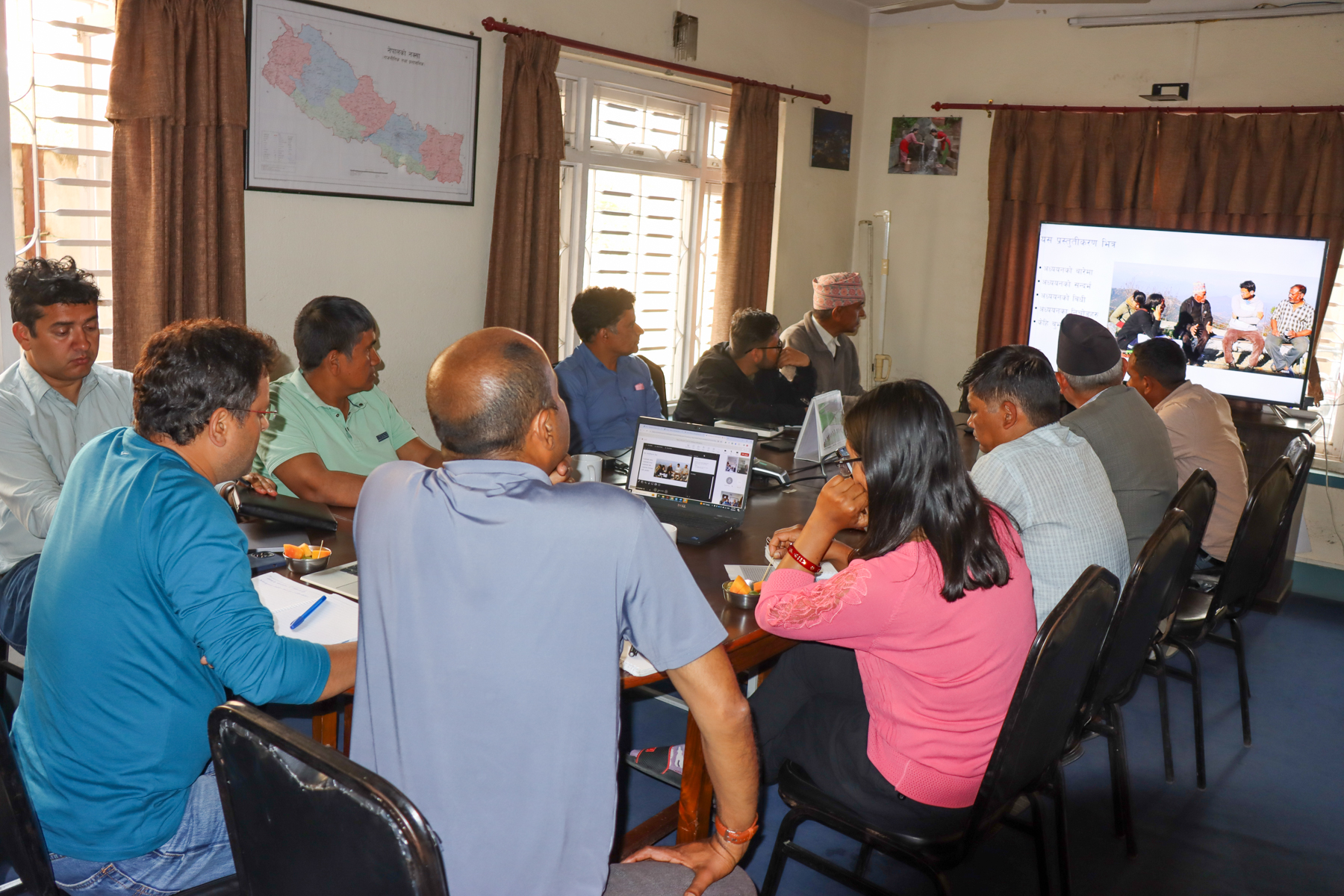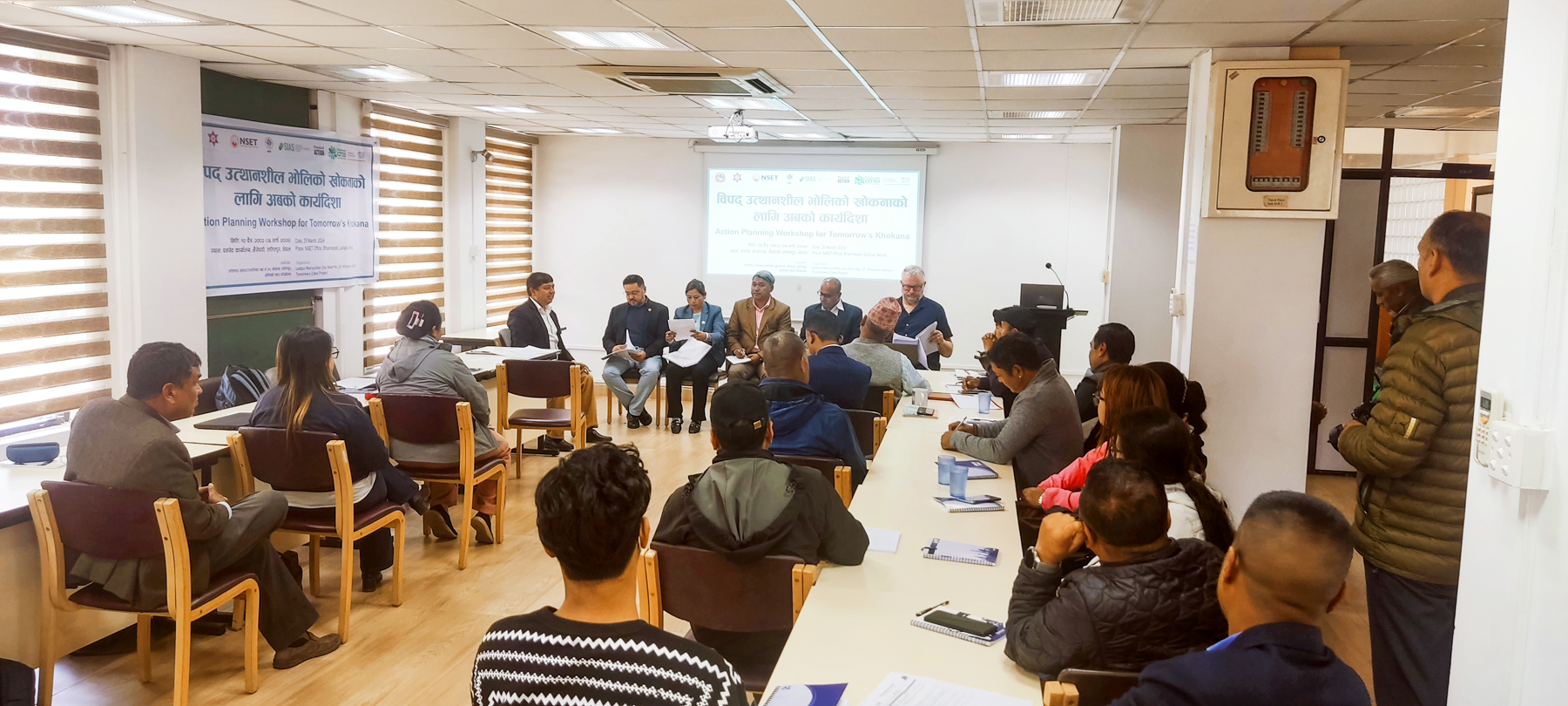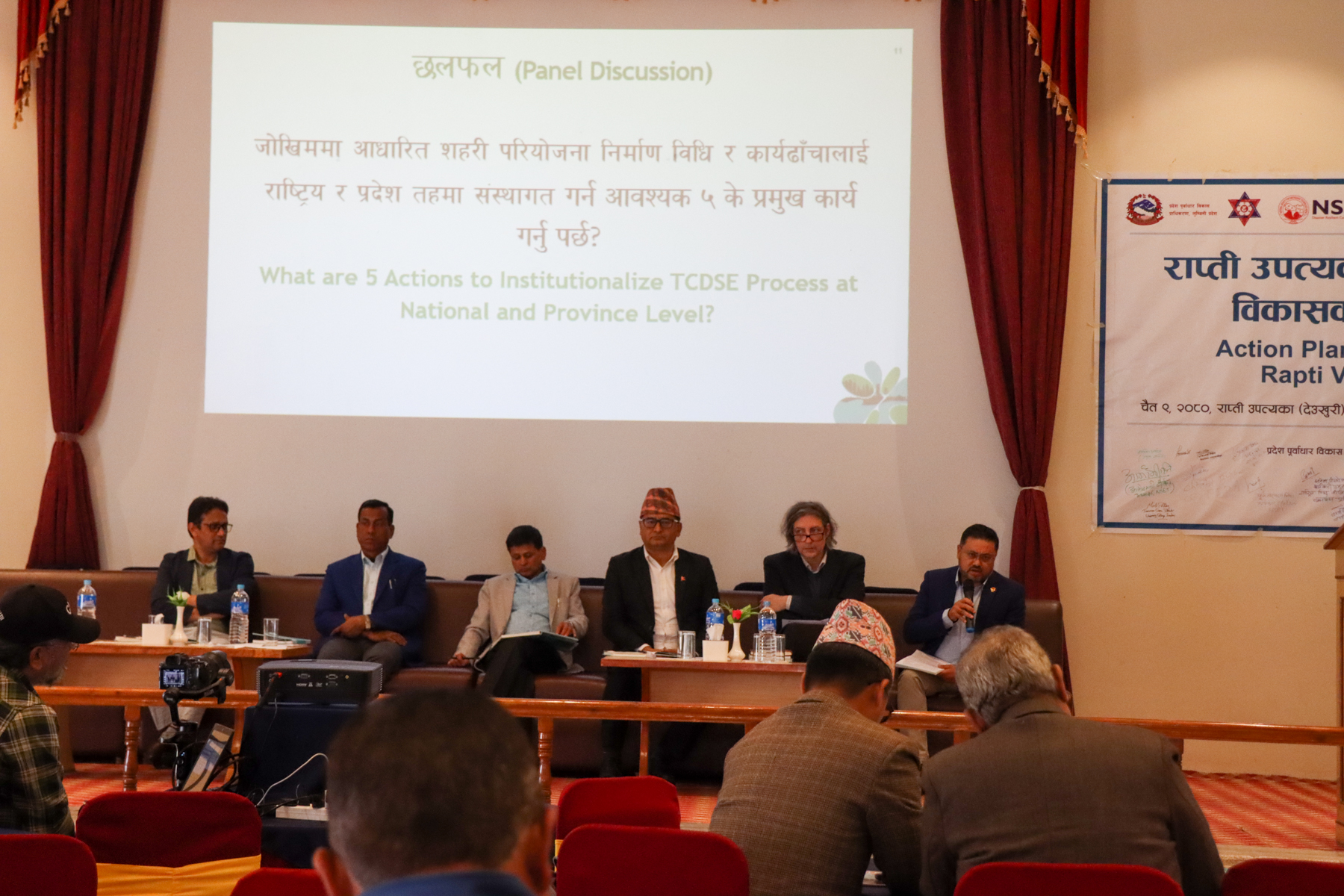March 29, 2024
The Fifth Conference on Public Policy and Governance in South Asia was held at the Nepal Administrative Staff College (NASC) on March 29, 2024, with the overarching theme of “Subnational Government as a Defender of Democratic Governance and Service Delivery.” The primary objective of the conference was to provide a platform for scholars from South Asia to convene and exchange insights on the operations of subnational governments, sharing best practices, addressing challenges, and exploring potential solutions.
During the inaugural session, Dr. Rajan Khanal, Executive Director of NASC, chaired the event, while Mr. Tulasi Sharan Sigdel, Senior Director of Studies, warmly welcomed distinguished guests and participants. Emphasizing the continuity of the conference series initiated in 2017, Mr. Sigdel highlighted its evolution from a Policy Discourse and Research Conference. Additionally, Prof. Dr. Bipin Adhikari, Constitutional Expert and Policy Analyst, underscored the significance of subnational governments within federal systems, emphasizing their role to uphold democratic principles at the local level.
The conference featured five parallel technical sessions covering diverse themes where the members from Southasia Institute of Advanced Studies (SIAS) presented their research findings and also served as discussants. Dr. Dil Khatri, Executive Director of SIAS, and Mr. Krishna Gyawali, General Secretary, Public Administrative Association of Nepal, and Chairperson of SIAS, participated as discussants for the theme: Subnational Governments: Structures, Innovations and Empowerment on which the speakers delved into the roles and structures of provincial and local governments, enriching the understanding of subnational governance dynamics and emphasizing the strategies for decentralization, service delivery and citizen engagement.
Dr. Govinda Paudel, Senior Researcher of SIAS, presented his research under the theme of the conference- Intergovernmental Relationships: Opportunities and Practices. The paper entitled “स्थानीय सरकार र सामुदायिक वन: नजोडिएको साइनो (“Local Governments and Community Forest: A Missing Link) demonstrated a missing link between local government and community forests. It focused on how the inadequate collaboration among local government and community forestry institutions would potentially undermine the rights of the community forest user groups and roles of the local government in promoting locally-led forest management.
Similarly, Ms. Gyanu Maskey, Researcher at SIAS, delivered a presentation entitled “Gender Equality and Social Inclusion in Urban Water Governance in Nepal”. The presentation was the part of the thematic session: Inclusive Governance and Service Delivery at the Subnational Level, the presentation highlighted, women, despite being the primary managers of water, are underrepresented in local water governance. Further, gender and caste-class intersections have made water access, meaningful inclusion & influence in local water governance more challenging, particularly for the marginalized. She emphasized that the intersectionality approach is crucial for meaningful inclusion of marginalized groups and concluded with a message that the devolution of authorities through federalization and proliferation of gender-inclusive policies have fostered opportunities for re-examining gender roles and promoting inclusion in water governing bodies in Nepal.
Additionally, Ms. Rojani Manandhar, a Researcher at SIAS, presented on the theme “Local Leadership Development and Functioning during Disasters,” Her presentation titled “Marginality Shaping Vulnerability and Risk of Disaster in the Southern Kathmandu Valley” highlighted the socio-economic nuances that is exacerbating the vulnerability of the marginalized people in Khokana and urging the government to prioritize these nuances in its planning mechanism to enhance capacity and foster community resilience in the face of disasters.
During the final panel discussion session, Honorable Mr. Pradip Paudel, Member of the Federal Parliament of Nepal, along with other distinguished panelists, deliberated on strategies to strengthen subnational governments and deepen democracy. This session was moderated by Mr. Bishnu Prasad Lamsal, Deputy Executive Director of NASC. The discussion delved into the experiences of federal, provincial, and local governments in implementing federalism, exploring administrative, fiscal, and political perspectives to meet public aspirations in Nepal.




